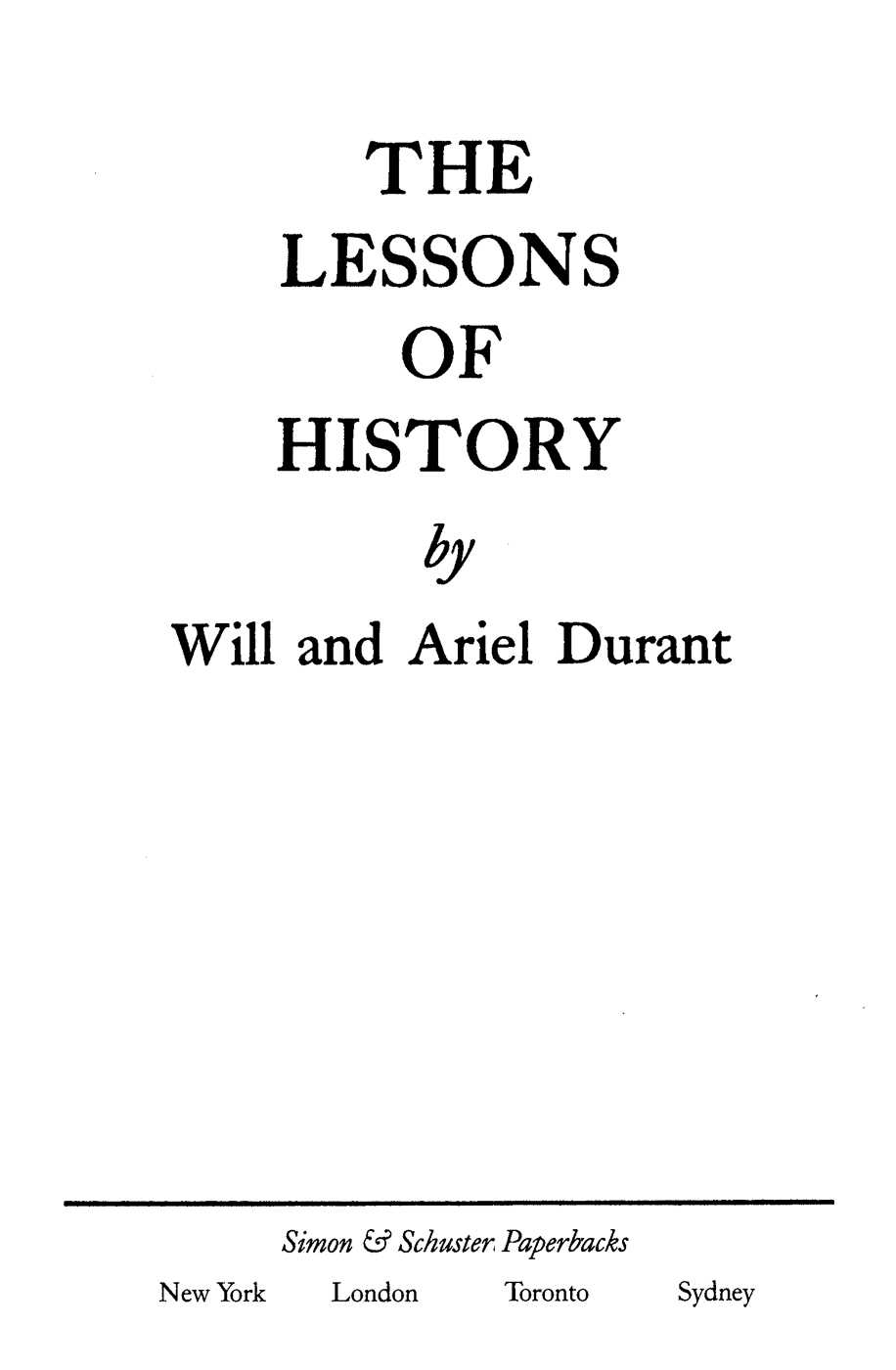Thank you for purchasing this Simon & Schuster eBook.
Sign up for our newsletter and receive special offers, access to bonus content, and info on the latest new releases and other great eBooks from Simon & Schuster.
C LICK HERE TO SIGN UP
or visit us online to sign up at
eBookNews.SimonandSchuster.com

Contents
PREFACE
I. Hesitations
II. History and the Earth
III. Biology and History
IV. Race and History
V. Character and History
VI. Morals and History
VII. Religion and History
VIII. Economics and History
IX. Socialism and History
X. Government and History
XI. History and War
XII. Growth and Decay
XIII. Is Progress Real?
ABOUT WILL AND ARIEL DURANT
BIBLIOGRAPHICAL GUIDE
NOTES
INDEX
Preface
This postlude needs little preface. After finishing The Story of Civilization to 1789, we reread the ten volumes with a view to issuing a revised edition that would correct many errors of omission, fact, or print. In that process we made note of events and comments that might illuminate present affairs, future probabilities, the nature of man, and the conduct of states. (The references, in the text, to various volumes of the Story are offered not as authorities but as instances or elucidations so come upon.) We tried to defer our conclusions until we had completed our survey of the narrative, but doubtless our preformed opinions influenced our selection of illustrative material. The following essay is the result. It repeats many ideas that we, or others before us, have already expressed; our aim is not originality but inclusiveness; we offer a survey of human experience, not a personal revelation.
Here, as so often in the past, we must gratefully acknowledge the help and counsel given us by our daughter Ethel.
WILL AND ARIEL DURANT
I. Hesitations
As his studies come to a close the historian faces the challenge: Of what use have your studies been? Have you found in your work only the amusement of recounting the rise and fall of nations and ideas, and retelling “sad stories of the death of kings”? Have you learned more about human nature than the man in the street can learn without so much as opening a book? Have you derived from history any illumination of our present condition, any guidance for our judgments and policies, any guard against the rebuffs of surprise or the vicissitudes of change? Have you found such regularities in the sequence of past events that you can predict the future actions of mankind or the fate of states? Is it possible that, after all, “history has no sense,”1 that it teaches us nothing, and that the immense past was only the weary rehearsal of the mistakes that the future is destined to make on a larger stage and scale?
 Уилл Дюрант (Will Durant)
Уилл Дюрант (Will Durant)